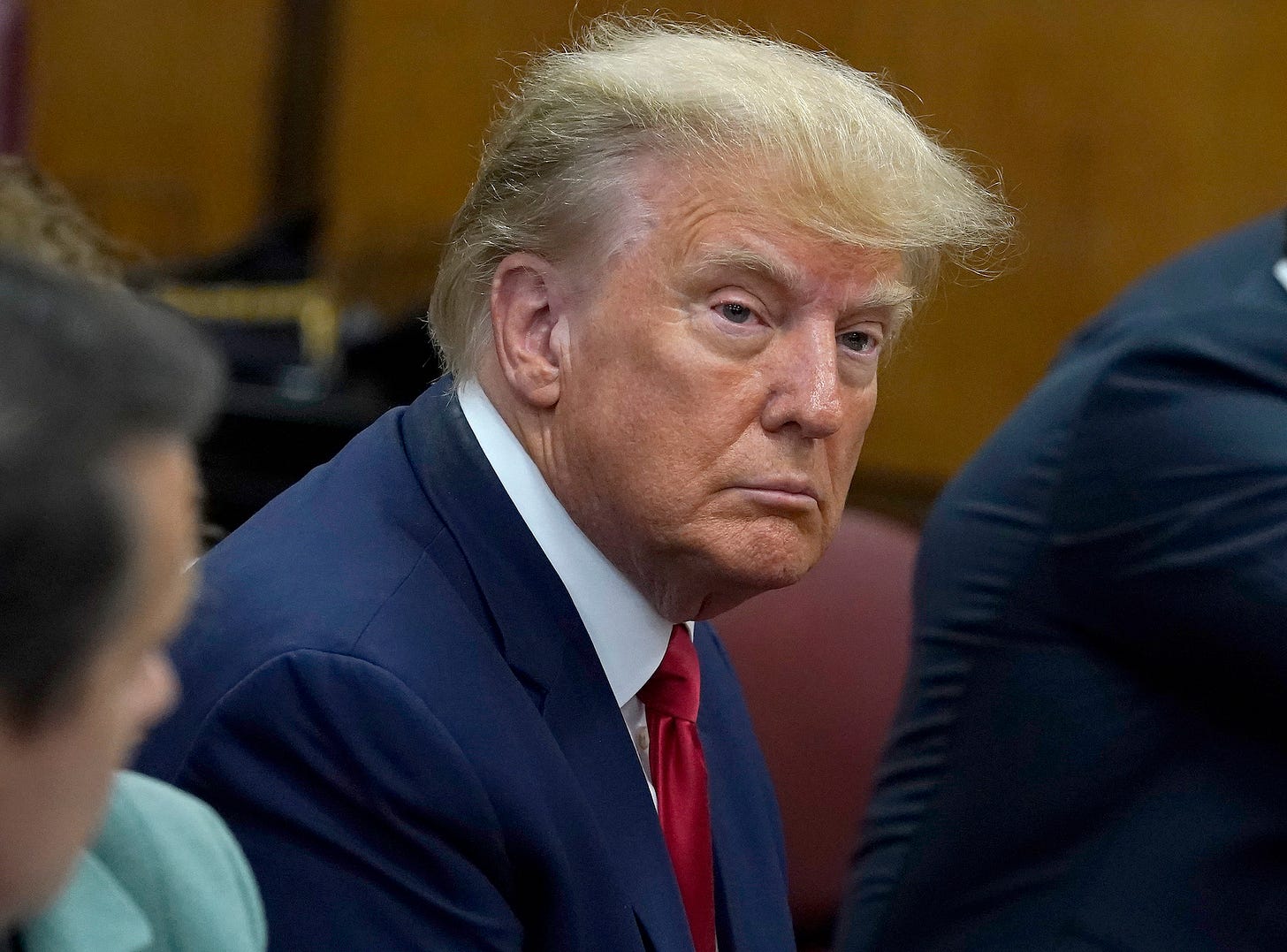
Donald Trump is someone who is quite adept at evading final judgment. He can file for bankruptcy, yet still advance himself as a brilliant and effective businessman. His appointed judge to the Supreme Court can write the decision conservative Christian religious freedom advocates feared the most, and Trump will still claim Christians need him to protect them. He distances himself from that which he is most directly responsible (Dobbs, his own Cabinet and staff appointments), and he evades accountability for his own false promises (Mexico will build the wall). He can lose an election by more than seven million votes and seventy-four votes in the Electoral College, and still claim he won.
This, let’s call it “slipperiness” to avoid harsher language for the moment, leads to a basically natural impulse among his political opponents. If Trump is known by his opponents for making a mockery of the truth — for destroying norms, and at a deeper level psychologically, for making them question what they thought to be true about politics, the country, and their own neighbors and family members — the most fitting, the most desirable response seems to naturally be some official declaration that he is illegitimate and that it was categorically wrong for anyone to support him. Ever.
For whatever else motivated the impeachment and attempted removal of Trump from office (which includes rational concern for the country, justified congressional oversight, etc.), it is clear to me that a primary motive was the official sanction and credence it would give to opposition to Trump. It would be, or so it was hoped, a final judgment against him. Incontrovertible evidence, arguments no longer necessary. It would make clear who was on “the right side of history.”
Many who oppose Trump don’t just want to win the argument, but end the conversation. Again, the reasons for this include the political and historical, yes, but also the personal and relational. I understand this desire. I don’t think it is immoral. Certainly not. I think our politics was generally healthier pre-Trump, and I tend to think that a post-Trump politics absent his influence would likely be healthier, too, even if such a state is impossible. (Do we have a post-Reagan politics? A post-FDR politics?)
Yet, in the runup to Trump’s arraignment, I made clear here at the newsletter, and at the Wear We Are podcast, that I thought the decision to indict Trump should only be made if the case against him was absolutely solid. You don’t charge a former president with a plan to employ a novel legal argument or with the hope he’ll incriminate himself. The costs and the risks are too high. Charge a former president, and the outcome better be close to a foregone conclusion.
Unfortunately, according to analysis from Ian Milihiser, David French and others, this does not seem to be a foregone conclusion. To paraphrase David, what is clear is that the president’s actions were sleazy, but being sleazy isn’t necessarily a crime.
The costs of swinging and missing on this, especially when it comes as a preemption of potentially more robust cases in Georgia and Washington, are high. A misguided pursuit of closure here can lead to a course of events which prevents the very closure that is desired.
Now, of course, others disagree with French and Milihiser, and think that the case DA Braggs laid out is compelling and likely to succeed. Perhaps that will end up to be the case.
What I would encourage though is that we all try our best to clear from our vision these hopes for some authority to come in and end the argument we’ve been having about Trump, to provide the final judgment that so many Trump opponents have sought. It’s fool’s gold.
This does not preclude supporting legal action against Trump if the case is solid. It does not, of course, mean that there should be no further discussion or investigation into the Trump Administration’s record.
My warning to Trump’s opponents is to not be so caught up in reacting to what Trump has done that you undermine building a political future that limits Trump’s influence in the future. This requires, in my view, a political vision which extends beyond mere reaction to Trump, what he surfaced and what he has wrought.




I’ve been mulling over this message ever since you posted it, and it strikes me as very wise. Like your other most convicting messages, it focuses not on the “what” of politics but on the heart of your readers. And it cuts to the core — a common thread throughout the Trump era, from threats to release his tax returns, to the Mueller investigation to discussion of the 25th Amendment to the hopes pinned on the January 6th committee to these various legal challenges has been the way they served exactly the role you describe.
I do think that impeachment is immune to this criticism, though. It’s THE constitutional remedy for rogue presidents, and had Mitch McConnell, Lindsey Graham, and eight more Republican Senators voted to convict and bar Trump from future office in the second impeachment — a reasonable ask from the least Republican-friendly caucus at the moment of Trump’s clearest culpability furthest from any election — then we would be in a very different place politically today.
Wise words, Michael.